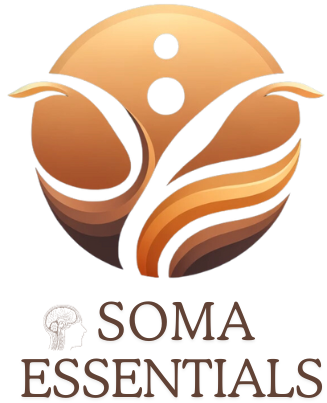Mind-Body Connection: Unlocked
Ever wondered how cognitive behavioral therapy can affect your physical health? Our brains and thinking play a crucial role in this. Have you considered the impact of yoga on your thoughts and physical well-being? The mental health-yoga connection has intrigued humanity for centuries, shaping our approach to wellness and the way our brains function. Exploring historical perspectives and modern researchers’ brain research, we uncover the profound impact of emotions and thinking on our mental health and memories. From childhood memories influencing adult behaviors to anxiety affecting blood pressure and mental health, every aspect of our lives intertwines with our physical state, including traumatic events, heart rate, and brain. By understanding the correlation between yoga and thinking, we can embrace holistic health approaches that address both mental and physical well-being, including the brain and trauma. Join us as we delve into the role of yoga and mindfulness in enhancing mental health, empowering participants to nurture a balanced sense of self through cbt and thinking techniques.
Research Evidence Supporting Mind-Body Connection
Scientific Studies Validating Mind-Body Link
Recent studies by renowned researchers have provided compelling evidence supporting the profound connection between the brain and body. Certain areas of the brain can be affected by trauma experienced in childhood. These studies demonstrate how childhood trauma can affect brain areas, impacting our thoughts, emotions, and mental well-being significantly.
Impact of Stress on Physical Health and Mental Well-being
New research has shed light on the detrimental effects of stress hormones on both physical and mental health, particularly in the brain areas associated with childhood trauma. Chronic stress can impact the brain and childhood areas, leading to health issues. CBT can help manage anxiety and depression.
Neurological Findings Supporting Mind-Body Interaction
Cutting-edge neurological findings have elucidated the intricate relationship between the brain and body areas. The brain-body connection is evident in various ways, including how our mental state influences pain perception, immune function, and even the rate of healing in response to injuries or illnesses.
Evidence-based Benefits of Meditation and Yoga
Numerous scientific studies have underscored the remarkable benefits of practices like meditation and yoga in fostering a harmonious mind-body connection and promoting brain health. These mindfulness techniques have been shown to reduce stress levels, alleviate symptoms of anxiety and depression, improve sleep quality, enhance overall well-being, and support brain health.

Impact of Mind-Body Connection on Mental Health
Influence of Positive Thinking on Mental Wellness
Positive Thinking and Mental Health
Positive thinking can significantly impact brain wellness by promoting a more optimistic outlook, reducing stress levels, and enhancing overall emotional well-being. When individuals actively engage in positive self-talk and focus on constructive thoughts, they are better equipped to cope with challenges and maintain a healthier mental state.
-
Optimistic mindset reduces stress
-
Enhances emotional resilience
-
Promotes overall emotional well-being
Mindfulness Practices for Anxiety and Depression Management
Mindfulness for Anxiety and Depression
Mindfulness practices, such as meditation and deep breathing exercises, offer effective tools for managing anxiety and depression. By encouraging individuals to stay present in the moment and acknowledge their emotions without judgment, mindfulness techniques can alleviate symptoms of anxiety and depression.
-
Encourages staying present in the moment
-
Alleviates symptoms of anxiety and depression
-
Provides effective coping mechanisms
Role of Mind-Body Techniques in Stress Reduction
Mind-Body Techniques for Stress
Mind-body techniques, including yoga, tai chi, and qigong, play a pivotal role in reducing stress levels. These practices combine physical movement with focused breathing and meditation, promoting relaxation while simultaneously calming the mind. As a result, individuals experience reduced stress and improved mental clarity.
-
Combines physical movement with focused breathing
-
Promotes relaxation and calmness
-
Enhances mental clarity
Enhancing Emotional Resilience through Mind-Body Alignment
Emotional Resilience via Mind-Body Alignment
The alignment of mind-body connection enhances emotional resilience by fostering a deeper understanding of one’s emotions. When individuals cultivate awareness of how their thoughts influence their physical sensations, they gain greater control over their emotional responses, leading to increased resilience during challenging times.
Impact of Mind-Body Connection on Physical Health
Effects of Stress on Immune System and Overall Health
Stress has a significant impact on the body’s immune system, making it less effective in fighting off infections and diseases. Chronic stress can lead to increased inflammation in the body, which is linked to a higher risk of developing various health conditions such as heart disease, diabetes, and autoimmune disorders.
Utilizing Relaxation Techniques for Pain Management
Practicing relaxation techniques like deep breathing, meditation, and progressive muscle relaxation can help alleviate physical pain. These methods not only reduce muscle tension but also promote the release of endorphins, natural painkillers produced by the body.
Integrative Medicine’s Impact on Chronic Disease Management
Integrative medicine approaches that combine conventional treatments with complementary therapies have shown promising results in managing chronic diseases. For instance, acupuncture has been found to effectively alleviate symptoms related to chronic pain conditions such as arthritis and fibromyalgia.
Exercise as a Catalyst for Improved Mental and Physical Well-being
Regular physical activity not only contributes to better physical health but also plays a crucial role in maintaining mental well-being. Exercise helps regulate blood pressure, heart rate, and overall bodily functions, reducing the risk of cardiovascular diseases while also releasing endorphins that elevate mood.
The mind-body connection profoundly influences physical health. When stress is managed effectively through relaxation techniques or integrative medicine approaches, the immune system becomes more robust. Exercise acts as a catalyst for improved mental and physical well-being.
Recovery from Trauma and Substance Use
Incorporating Mind-Body Therapies into Addiction Recovery Programs
Integrating mind-body therapies, such as yoga and mindfulness meditation, into addiction recovery programs can significantly aid individuals in overcoming substance use disorders. These holistic approaches not only focus on the physical aspects of addiction but also address the psychological and emotional components, promoting a comprehensive recovery process.
Healing Trauma through Somatic Experiencing Techniques
Somatic experiencing techniques offer a unique pathway for trauma healing by focusing on bodily sensations and emotions associated with traumatic events. This approach enables individuals to release pent-up stress and tension stored in the body, fostering a deeper level of emotional and psychological healing. By addressing trauma at its core, somatic experiencing empowers individuals to process their experiences in a safe and supportive environment.
Addressing Underlying Emotional Issues in Substance Use Recovery
Effectively treating substance use involves delving into the underlying emotional issues that may have contributed to the development of addictive behaviors. By employing evidence-based therapies like cognitive-behavioral therapy (CBT) tailored specifically for young adults, treatment programs can assist individuals in recognizing and modifying maladaptive thought patterns linked to their substance use. This targeted approach equips young adults with valuable coping skills to manage chronic stressors without resorting to addictive substances.
Cultivating Self-Awareness to Support Healing from Trauma
Encouraging self-awareness forms an integral part of the recovery journey from trauma. It allows individuals to gain insight into their triggers, responses, and coping mechanisms, empowering them to make conscious choices aligned with their well-being. Through practices such as mindfulness meditation or journaling, individuals can develop a heightened sense of self-awareness, facilitating greater resilience in navigating past traumatic experiences.
By integrating mind-body therapies into addiction recovery programs, individuals can experience more comprehensive healing that encompasses both physical and emotional well-being. Addressing trauma through somatic experiencing techniques provides a profound avenue for releasing stored tension and promoting emotional restoration. Furthermore, targeting underlying emotional issues in substance use recovery equips individuals with essential skills for managing stressors effectively.
Understanding the Neurological Basis of Mind-Body Connection
Brain Regions Involved in Regulating Emotions and Bodily Functions
The nervous system, comprising the brain and PNS, plays a pivotal role in regulating emotions and bodily functions. The limbic system, including the amygdala and hippocampus, is responsible for processing emotions, while the hypothalamus governs essential bodily functions such as heart rate and blood pressure.
Neuroplasticity’s Role in Shaping Mind-Body Responses
Neuroplasticity, or the brain’s ability to reorganize itself, is crucial in shaping mind-body responses. This phenomenon allows the brain to adapt and form new connections based on experiences and environmental influences. For instance, individuals recovering from trauma can harness neuroplasticity through therapy to rewire their responses to stressors.
Impact of Neurotransmitters on Mood, Stress, and Physical Health
Neurotransmitters like serotonin, dopamine, and norepinephrine profoundly impact mood, stress levels, and physical health. For example, low serotonin levels are associated with depression and anxiety disorders. Understanding these neurotransmitters helps in comprehending how mental states directly influence physical well-being.
How Mindfulness Practices Influence Brain Structure and Function
Engaging in mindfulness practices such as meditation can significantly influence brain structure and function. Research suggests that regular mindfulness meditation can lead to increased gray matter density in brain regions associated with learning, memory processes, emotion regulation, and self-referential processing. This indicates a tangible link between mental exercises and physical changes within the brain.
Integrative Approaches for Mind-Body Connection
Mindfulness-Based Cognitive Therapy for Holistic Wellness
Mindfulness-based cognitive therapy combines traditional cognitive behavioral techniques with mindfulness meditation practices. This approach helps individuals become more aware of their thoughts and emotions, leading to better management of stress, anxiety, and depression.
-
Pros:
-
Enhances self-awareness and emotional regulation.
-
Reduces the risk of relapse in individuals with recurrent depression.
Collaborative Care Models Integrating Mental and Physical Healthcare
Collaborative care models involve a team-based approach that integrates mental health professionals into primary care settings. This allows for comprehensive assessment and treatment of both physical and mental health conditions simultaneously.
-
Pros:
-
Addresses the whole person rather than isolated symptoms.
-
Improves patient outcomes by providing coordinated, holistic care.
Biofeedback as a Tool for Enhancing Mind-Body Awareness
Biofeedback uses electronic monitoring to provide real-time information about physiological processes such as heart rate, muscle tension, and skin conductance. By learning to control these functions, individuals can improve their overall well-being.
-
Pros:
-
Empowers individuals to regulate their body’s responses to stress.
-
Can be used to manage various conditions including chronic pain and anxiety disorders.
Holistic Nutrition’s Impact on Mental Clarity and Emotional Balance
Holistic nutrition emphasizes the importance of whole foods, nutrient-dense meals, and mindful eating practices. A balanced diet can positively influence mood, cognition, and overall mental well-being.
-
Pros:
-
Provides essential nutrients that support brain function.
-
Supports emotional stability by preventing blood sugar fluctuations.
Incorporating these integrative approaches into daily life can lead to a more harmonious mind-body connection. Each method offers unique benefits that contribute to overall wellness.
Harnessing the Power of the Mind-Body Connection
You’ve now seen the compelling research evidence supporting the mind-body connection and its profound impact on both mental and physical health. Understanding the neurological basis of this connection opens up a world of possibilities for integrating approaches that can truly harness its power. Just as a car needs both fuel and a well-maintained engine to run smoothly, your mind and body work in unison to keep you thriving. It’s time to take charge of this incredible synergy and explore integrative approaches that can enhance your overall well-being.
So, what are you waiting for? Dive into practices like yoga, meditation, or mindfulness exercises to start nurturing your mind-body connection today. Embrace holistic approaches that recognize the intricate dance between your thoughts, emotions, and physical health. By taking small steps every day to strengthen this bond, you’ll unlock a wealth of benefits for your vitality and resilience.
FAQs
How long does it take to notice the effects of mind-body practices?
The timeframe varies from person to person, but many individuals report feeling some positive effects within a few weeks of consistent practice. However, significant changes may take longer—several months or more—to become noticeable.
Are there specific mind-body practices recommended for beginners?
Yes, practices such as deep breathing exercises, progressive muscle relaxation, guided imagery, and gentle yoga are often recommended for beginners due to their accessibility and gentle nature.
Can children benefit from fostering a strong mind-body connection?
Absolutely! Children can benefit greatly from learning techniques such as deep breathing or simple mindfulness exercises. These practices can help them manage stress and build emotional resilience from an early age.
Is there scientific evidence supporting the effectiveness of mind-body interventions?
Yes, numerous studies have demonstrated the effectiveness of mind-body interventions in reducing stress, anxiety, depression, chronic pain, and improving overall quality of life. Research continues to expand our understanding of these powerful connections.

